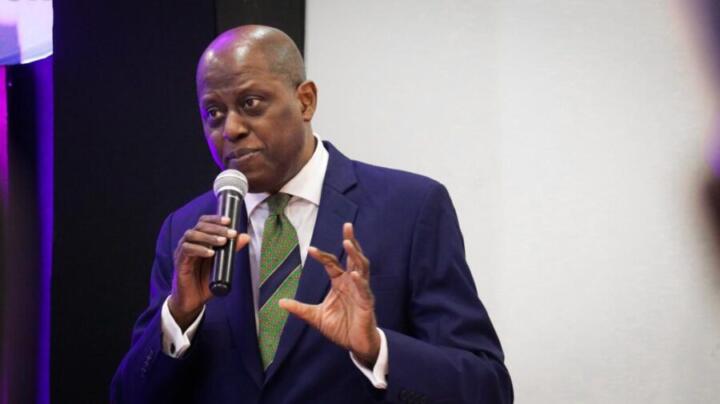The Governor of the Central Bank of Nigeria (CBN), Dr. Olayemi Cardoso, has reaffirmed his administration’s determination to sustain the momentum of ongoing economic and financial sector reforms, declaring that the apex bank will not succumb to “reform fatigue” despite the challenges confronting the economy.Cardoso made the declaration during an interactive session with financial sector leaders and policymakers in Abuja, where he reiterated the CBN’s commitment to restoring confidence, stabilising the naira, and fostering sustainable economic growth. He explained that the current reforms were essential for repositioning the economy on a path of productivity, efficiency, and global competitiveness.
According to him, Nigeria’s economic transformation requires persistence and policy consistency, noting that the short-term pains associated with reforms are necessary sacrifices to achieve long-term stability and prosperity. “We are aware of the difficulties these changes bring, but retreating from reforms now would mean undoing the progress we’ve made. We won’t allow reform fatigue to derail our objectives,” Cardoso stated.

He emphasised that the CBN’s monetary policy direction remains anchored on transparency, price stability, and market discipline. Cardoso noted that the recent policy decisions, including measures to unify exchange rates, curb inflation, and strengthen the banking sector, were beginning to yield positive outcomes.
“Inflationary pressures are easing gradually, and exchange rate volatility is moderating. These developments indicate that we are on the right track. Our focus is to sustain these gains through a careful balance of monetary and fiscal coordination,” he added.
Cardoso also highlighted the importance of collaboration between the CBN and fiscal authorities, saying that maintaining synergy is critical for ensuring macroeconomic stability. He noted that the apex bank was working closely with the Ministry of Finance and other relevant agencies to promote fiscal discipline and expand non-oil revenue sources.
He further stressed that the CBN remains committed to fostering a conducive environment for investment by maintaining financial system stability and supporting the growth of the real sector. “Our monetary tools are being recalibrated to encourage lending to productive sectors such as manufacturing, agriculture, and infrastructure. These sectors hold the key to reducing unemployment and stimulating inclusive growth,” he said.
Economic analysts have commended Cardoso’s stance, describing it as a bold reaffirmation of policy commitment. According to Dr. Abiodun Aina, a financial economist, Cardoso’s remarks reflect the central bank’s awareness of the risks of policy reversal. “Nigeria has had a history of inconsistent policy application, and reform fatigue has often been the undoing of economic progress. Cardoso’s insistence on staying the course sends a reassuring signal to investors,” Aina said.
He also noted that sustained implementation of reforms in foreign exchange management and banking supervision could strengthen Nigeria’s creditworthiness and attract long-term investment.
The CBN governor acknowledged that the path to full recovery remains challenging but insisted that the reforms already undertaken are laying a strong foundation for future stability. “We are not under any illusion that the road will be easy. However, with discipline, resilience, and collective effort, Nigeria will overcome its current macroeconomic difficulties,” Cardoso said.
He also addressed concerns from stakeholders about the high cost of credit, assuring that the CBN was exploring options to improve liquidity in the banking sector and encourage lending to small and medium-sized enterprises (SMEs). “Access to affordable credit remains a major catalyst for growth. We are reviewing ways to ensure that credit is channelled effectively to sectors that drive job creation and innovation,” he explained.
Cardoso reiterated that transparency and accountability remain central to his leadership approach. He assured that all CBN interventions will continue to be guided by data-driven decision-making and strict adherence to international best practices.
In a related development, financial market observers have noted improved investor confidence in Nigeria’s economic outlook following recent monetary policy actions. The CBN’s continued commitment to reforms, including exchange rate liberalisation and inflation targeting, has been credited for the modest rebound in foreign portfolio inflows and relative naira stability.
While urging Nigerians to remain patient, Cardoso stated that the reforms being implemented will gradually yield measurable benefits. “The success of our policies depends on persistence. Reform fatigue is not an option. The CBN will continue to pursue sound economic management and uphold its mandate of ensuring price and financial stability,” he concluded.
With the governor’s renewed assurance, stakeholders are optimistic that the central bank’s steadfast approach could anchor Nigeria’s economic recovery and restore investor confidence, provided the momentum is sustained and complemented by strong fiscal measures from the federal government.
Support InfoStride News' Credible Journalism: Only credible journalism can guarantee a fair, accountable and transparent society, including democracy and government. It involves a lot of efforts and money. We need your support. Click here to Donate
